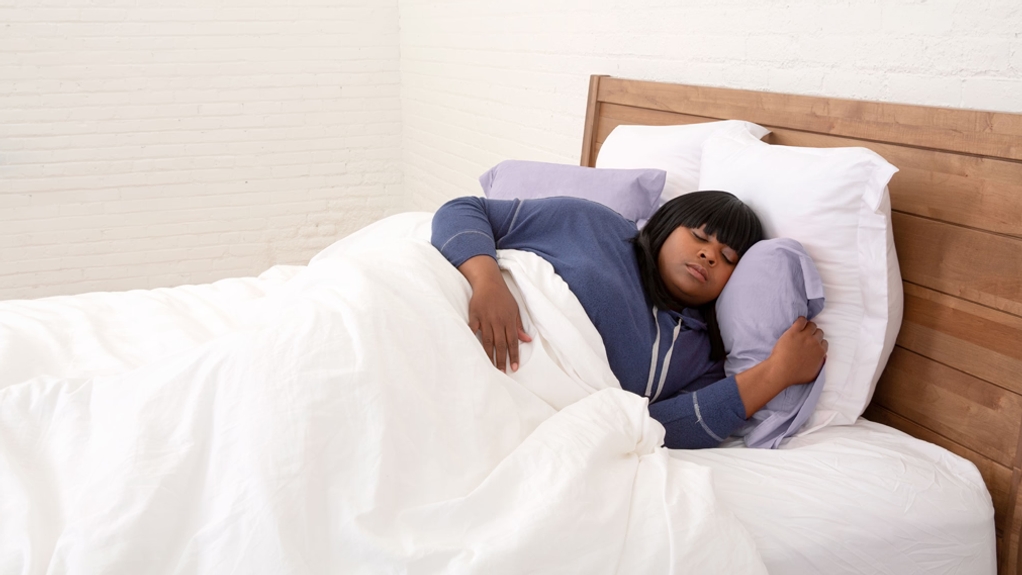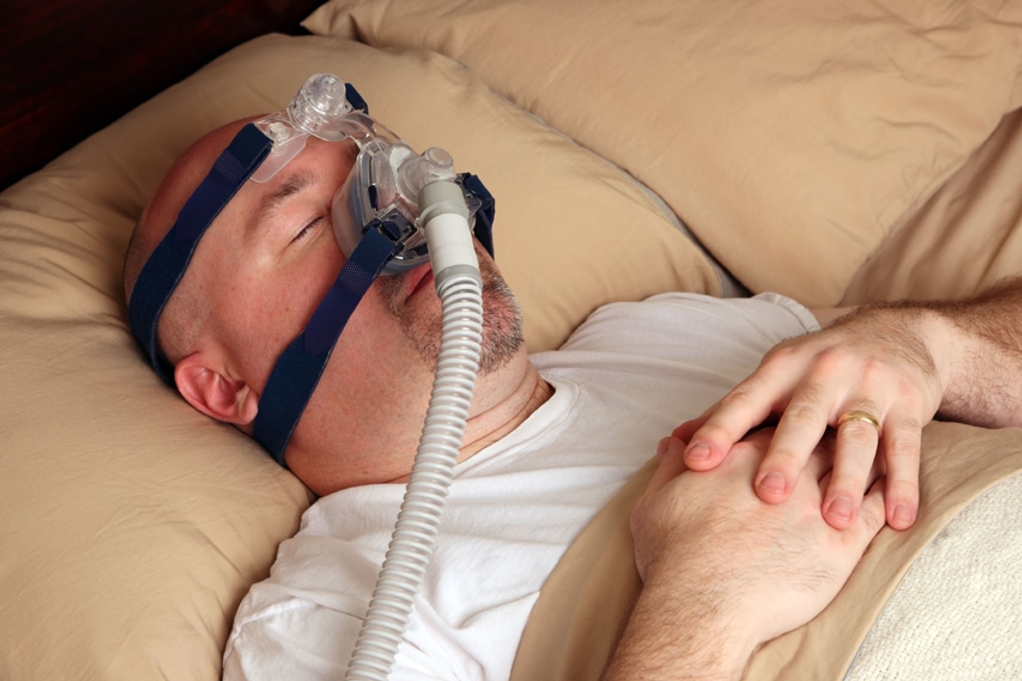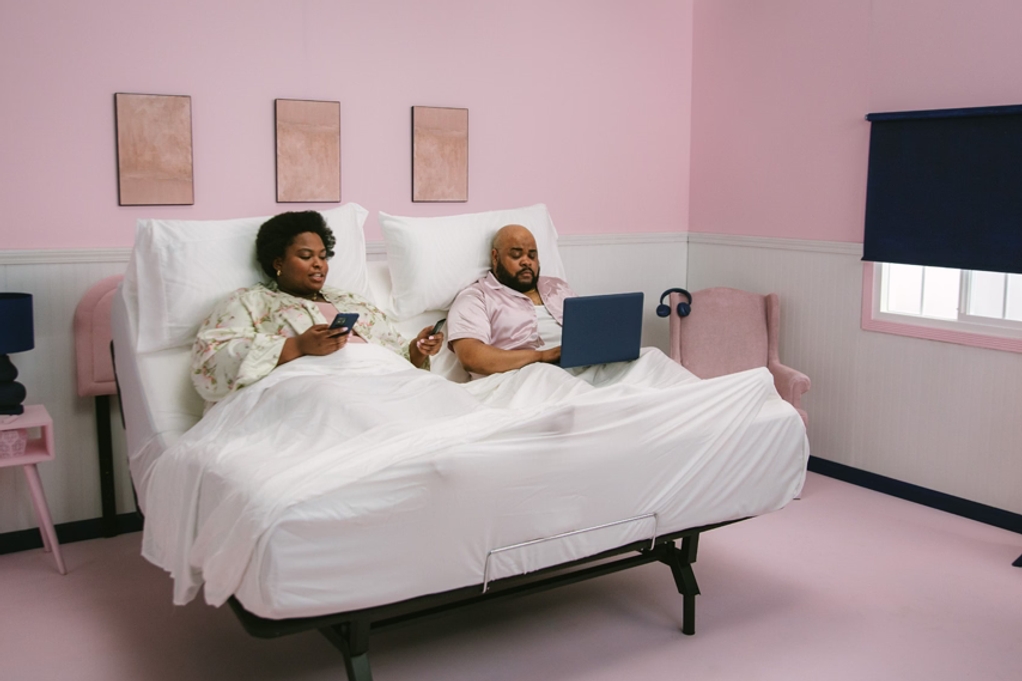Sometimes -- especially in today’s fast-paced society -- it feels like there’s so much to do and not enough minutes in the day to get everything done. And with the chaos of time, it’s not uncommon to be tempted to sacrifice quality shut-eye in order to cross more things off your to-do list -- we’ve all been there. You tell yourself that you’re just going to respond to one more email, watch one more episode, and all of a sudden, you look at the clock, and it’s 3 am.
But that can be dangerous, believe it or not. You see, sleep is like air, water, and food. Similar to a car, your body can’t run without fuel, and sleep is a major source of fuel. Over time, the more sleep you miss, the deeper the toll it takes on your overall health—and it’s something that no amount of coffee can solve.
If you’ve ever wondered how long you can go without sleep, you’ve come to the right place. In this article, we’ll tell you everything you need to know about sleep deprivation, including the short-term and long-term effects. Are you ready? Let’s dive in!
But First, What is Sleep Deprivation Anyway?
Side hustles, deadlines, staying up all night watching cat videos, a new bundle of joy in the house, insomnia -- there are tons of reasons why people aren’t sleeping. In fact, according to the CDC, an unbelievable 7 to 19 percent of adults in the U.S. don’t sleep enough, and a whopping 50 to 70 MILLION Americans have chronic sleep disorders.
In a nutshell, sleep deprivation means you don’t get enough sleep. Most healthy adults need anywhere from seven to nine hours per night. You may also be sleep deficient if you snooze at times that are out of sync with your circadian rhythm or don’t sleep well. Sleep deficiency is a serious medical condition that can lead to mental and physical health issues like kidney disease, high blood pressure, and depression -- just to name a few. Yeah, no thanks.
Why Do We Need Sleep?
At the end of the day, we don’t have a crystal-clear answer as to why we need sleep to survive, but scientists do have four theories:
1. Inactivity Theory
One of the earliest theories is that we drift off to snoozeville to avoid harm during a time we’re particularly vulnerable. By sleeping, we avoid injuring ourselves in the dark or running into not-so-friendly predators. And lucky for you, when you’re cuddled up in a Big Fig, you’re not at risk of running into any apex predators—unless you’re into that kind of thing.
2. Energy Conservation Theory
All living beings compete for energy resources such as water and food. And by sleeping, we reduce our energy demand and consumption, helping us get by on fewer resources. Many scientists actually link this idea to inactivity theory.
3. Restorative Theory
It’s a pretty long-standing belief that rest rejuvenates us -- and scientific evidence supports this. Animals deprived of quality shut-eye often die within a few weeks, and many of our restorative functions -- such as the glymphatic system -- work best or solely while we’re in dreamland. So, yeah, getting enough sleep might actually help you live longer, and we can totally get behind that.
4. Brain Plasticity Theory
Brain plasticity -- a.k.a. neuroplasticity or neural plasticity -- is our nervous system’s ability to change in response to internal or outside stimuli. Scientists have linked sleep to brain development and plasticity in children and infants. For adults, scientists note sleep deprivation’s effect on our thinking skills. Remember back when you could rage all night long? Now it’s more like binging Netflix or pushing through to meet deadlines. Either way, the next morning, you can barely remember your own name and that’s what we’re talking about.
Although these interesting theories still remain unproven, science has made major strides in discovering what happens during sleep and what mechanisms in the body control the cycles of wakefulness and sleep that help define our lives. While this research doesn’t directly answer the question, “Why do we need sleep?” it does set the stage for putting that question in a new context and generating new knowledge about this essential (and amazing) part of life.
How Long Can You Go Without Sleep?
It’s a tricky question -- and, to be honest, one that is not so easily answered. If you’re curious about how long your body can stay awake without completely and involuntarily shutting down, the world record is just a little more than 11 days! Our thoughts? Don’t be a hero, just go to bed. This isn’t one of those records you should try to beat.
Back in 1964, a student by the name of Randy Gardner tested the limits of his body and mind by staying awake as long as he could for a high school science experiment. Apparently, Gardner went a shocking 264.4 hours without sleeping, which remains the official world record to this day. Although it was an impressive feat, his experience didn’t come without consequences… Decades later, he would still struggle with severe insomnia.
Okay, So How Long Can You Go Without Sleep Before Your Body Is Negatively Affected?
Twenty-four hours. Yup -- you read that right. According to research, the negative effects of sleep deprivation often take a measly twenty-four hours to occur -- except in some crazy-rare medical cases, like the one guy who went months at a time without meaningful sleep. But that’s a whole other thing.
After just 24 hours without a good snooze, you will start to notice a lag in cognition. Your thoughts will become sluggish, your memory will falter, and it may be challenging to maintain a single line of thought. Your decision-making will become sloppy, your judgment will be affected, and you will likely experience a major decline in hand-eye coordination. Overall, not good stuff.
If this sounds similar to a wild night out with the pals after one too many Long Island Ice Teas, then you wouldn’t be too far off. Being awake twenty-four hours is equivalent to having a blood alcohol content of .10% -- so that unbearable hungover feeling makes a lot of sense!
Causes of Sleep Deprivation
There are a ton of factors that can contribute to sleep deprivation, some of which include:
- Sleep habits: If you head to bed at vastly different times, take long cat-naps throughout the day, or consistently work in bed, you can easily disrupt your sleep schedule. We know you probably love your midday nap, but if you want a consistent sleep schedule, you’re going to have to suck it up, buttercup.
- Stress: If something is on your mind and you’re in a state of worry, it’s pretty easy to end up lying wide awake at night, tossing and turning, leading to a bad night’s rest and a loss of sleep.
- Environment: Your sleeping situation plays a huge role in how much shut-eye you get at night. Things like a barking dog, an uncomfortable mattress, or a light-filled bedroom can all contribute to sleep deprivation. Is your partner a snore-machine? That might be really screwing you up.
- Work: If you happen to work late or have to work the dreaded graveyard shift, you can easily slip into being sleep-deprived.
- Stimulation right before you snooze: Put your phone DOWN! Participating in activities that stimulate your noggin -- such as drinking caffeine, using screens, or even exercising -- can all contribute to you having a difficult time drifting off to dreamland, increasing your chances of experiencing sleep deprivation.
What To Expect In The Short-Term
It doesn’t take long to start dragging thanks to missed hours in the sack. These are the likely effects of a few sleepless nights:
- Irritability
- Brain fog
- Depressed mood
- Anxiety
- Fatigue
- Daytime drowsiness
- Lack of motivation
- Forgetfulness
- Impaired immunity
- Longer reaction time
- Lack of coordination
- Difficulty concentrating and making decisions
What To Expect In The Long-Term
If you find that your sleepless nights are chronic, they can eventually lead to more serious problems, like severe mood swings, hallucinations, and an increased risk of mental illness, heart disease, and stroke—uh, yikes. According to the CDC, individuals who slept less than seven hours per day were more likely to report these ten chronic health conditions:
- Diabetes
- Heart attack
- Asthma
- Cancer
- Depression
- Arthritis
- Chronic kidney disease
- Stroke
- COPD
- Coronary heart disease
Can’t Sleep, Won’t Sleep? Try This:
If you’re having a difficult time closing your peepers to drift off to dreamland, we know one sure-fire solution. Get a new mattress. Seriously. Something as small as sleeping on an old, uncomfortable mattress could be the culprit behind your sleeplessness. Does your back crack like a glowstick when you get up in the morning? The culprit is probably your mattress, and it’s keeping you from getting those quality ZZZs.
Not sure where to find a comfy-cozy mattress that is as awesome as you are? Check out Big Fig -- the mattress for a bigger figure. This super innovative mattress is made with THERMOGEL COOLING ® technology that actively cools your body temperature as you count sheep. The technology is truly one-of-a-kind and activates with moisture contact to create a cooling sensation close to the skin, so you can slide into bed and say “ahhhhhhhh.” Oh, and the best part? The Big Fig Mattress is fully backed by a 20-year warranty and comes with hundreds of verified reviews from happy dreamers.
What more could you possibly look for in a mattress?
The Bottom Line
So, how long can you go without sleep, you ask?
While the answer to this question is a little tricky, it only takes twenty-four hours for your body to start feeling the effects of sleep deprivation. And sleep deprivation leads to a whole list of health issues, so do yourself a favor and just get some good quality shut-eye each and every night, okay? Hallucinations are not the vibe, guys.
Need help catching some Zzz’s? Check out Big Fig -- the comfiest mattress on the planet. It doesn’t matter if you’re deliciously curvy, big & tall, extra fluffy or anywhere in between -- the Big Fig Mattress was made for you!
Ready to get the best snooze of your life? Big Fig’s got your back!
Sources:
Sleep Deprivation and Deficiency | NHLBI, NIH
Why Do We Sleep, Anyway? | Healthy Sleep | Harvard
How Long Can Humans Stay Awake? | Scientific American
The Impact of Studying Brain Plasticity | NCBI
How Sleep Clears the Brain | National Institutes of Health
Drowsy Driving- Sleep and Sleep Disorders | CDC
Hyperarousal and sleep reactivity in insomnia: current insights | NCBI




